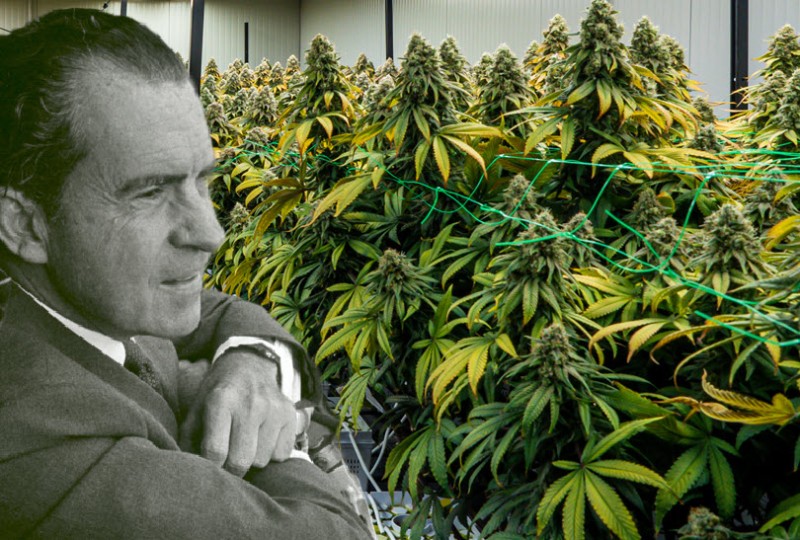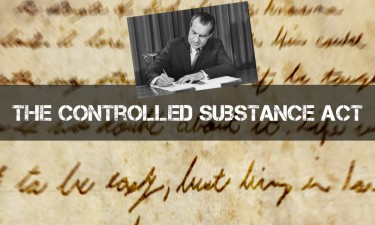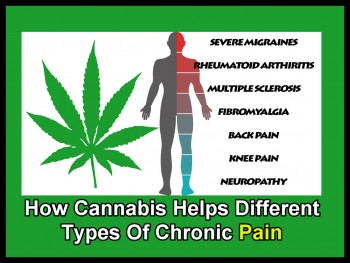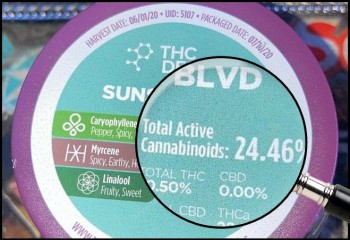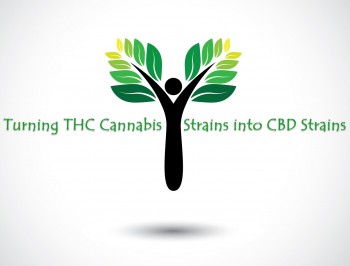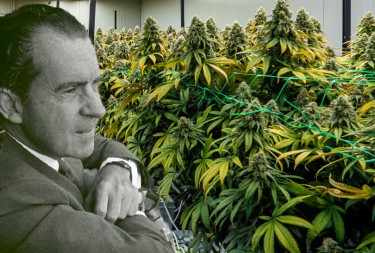
Secret Tapes Reveal that the Father of the Drug War didn’t think that weed was that bad
Richard Nixon, often regarded as the "Father of the Drug War," left an indelible mark on American drug policy that continues to shape our society today. In 1971, Nixon signed the Controlled Substances Act (CSA) into law, setting in motion a series of events that would dramatically alter the landscape of drug regulation and enforcement in the United States. This pivotal piece of legislation not only granted pharmaceutical companies a virtual monopoly over drug production and distribution but also weaponized the justice system against non-violent individuals who chose to consume substances deemed illegal by the government.
Nixon's public stance on drugs, particularly marijuana, was uncompromising and harsh. He championed a zero-tolerance approach, famously declaring drug abuse as "public enemy number one" and calling for an "all-out offensive" against it. This rhetoric laid the groundwork for decades of aggressive anti-drug policies that have led to the incarceration of countless individuals for non-violent drug offenses.
However, recently uncovered secret recordings paint a starkly different picture of Nixon's private views on marijuana. These tapes, captured in the intimate chambers of his staff meetings, reveal a man whose personal opinions on cannabis were far more nuanced and less severe than his public pronouncements suggested. The disconnect between Nixon's public policy and private thoughts raises troubling questions about the foundations of the War on Drugs and its lasting impact on American society.
Today, we'll take a deep dive into Nixon's recorded statements, analyzing them in the context of a nation where hundreds of thousands of people continue to face legal consequences for cannabis-related offenses. As we examine these private conversations, we'll confront the unsettling reality that the architect of America's drug war may have been fully aware of the disconnect between marijuana's actual risks and the draconian measures he publicly supported to combat its use.
Public Nixon vs Private Nixon
The public persona of Richard Nixon was that of a staunch anti-drug crusader, a man who viewed drug abuse as an existential threat to American society. In June 1971, Nixon famously declared drug abuse as "public enemy number one" and called for a "new, all-out offensive" to combat it. This declaration effectively launched the War on Drugs, a campaign that would reshape American criminal justice policy for decades to come.
Nixon's public actions matched his rhetoric. He signed the Controlled Substances Act in 1970, which established the scheduling system for drugs that remains in place today. Under this system, marijuana was classified as a Schedule I substance, alongside drugs like heroin, deemed to have "no currently accepted medical use and a high potential for abuse." This classification flew in the face of scientific evidence even then, but it aligned with Nixon's public stance on cannabis.
The case of Timothy Leary, the LSD researcher and counterculture icon, exemplifies Nixon's public approach to drug enforcement. In March 1970, Leary received a draconian sentence of up to 10 years in prison for possessing less than an ounce of marijuana. Rather than viewing this as an excessive punishment, Nixon doubled down. As he told his Chief of Staff H.R. Haldeman in May 1970, "I want a goddamn strong statement on marijuana. By God we are going to hit the marijuana thing, and I want to hit it right square in the puss."
Nixon's public rhetoric often took on racist overtones, particularly when discussing drug use among minority communities. He frequently associated drug use with African Americans and other minorities, using coded language to appeal to white voters' fears and prejudices. This racialized approach to drug policy was later confirmed by Nixon's domestic policy chief, John Ehrlichman, who admitted in a 1994 interview that the War on Drugs was designed to target "the antiwar left and black people."
However, behind closed doors, a different Nixon emerged. Recently uncovered audio recordings reveal a man who privately held much more nuanced views on marijuana. In a March 1973 recording, Nixon candidly admitted, "I know nothing about marijuana. I know that it's not particularly dangerous; I know most of the kids are for legalizing it."
This private acknowledgment stands in stark contrast to his public actions and statements. Nixon even expressed misgivings about harsh marijuana penalties, telling John Ehrlichman, "The penalties are ridiculous. I have no problem with the fact that there should be, there should be an evaluation of penalties on it, and there should not be penalties that, you know, like in Texas where people get 10 years for marijuana. That's wrong."
In another recording from September 1972, Nixon admitted to being in favor of "modification of penalties in many areas" related to drug offenses, but noted that he didn't "talk about it anymore." This suggests a calculated political decision to maintain a tough public stance on drugs, even while privately harboring doubts about the wisdom of such policies.
The disconnect between Nixon's public and private personas on drug policy is striking and deeply troubling. While publicly championing a war that would lead to the arrest and incarceration of millions of Americans, particularly from minority communities, Nixon privately acknowledged the relative safety of marijuana and the excessive nature of drug penalties. This dichotomy raises serious questions about the true motivations behind the War on Drugs and the lasting impact of Nixon's public policies on American society.
Why this matters today?
The ramifications of Nixon's Controlled Substances Act (CSA) continue to reverberate through American society, more than half a century after its inception. This legislation has fundamentally altered the fabric of the United States, creating criminals out of otherwise law-abiding citizens for non-violent offenses. Perhaps even more insidiously, it has provided law enforcement with broad powers to seize assets from individuals suspected of drug crimes, often without due process or even a conviction.
One of the most troubling aspects of this policy is civil asset forfeiture, which allows law enforcement to confiscate property they believe is connected to criminal activity. This practice has led to numerous abuses, with innocent people having their possessions seized simply because of proximity to alleged drug activity. A stark example of this overreach occurred recently when a Sheriff's department seized cash trucks from legal cannabis dispensaries. While the company eventually recovered their funds, this incident highlights the ongoing tension between state-level cannabis legalization and federal prohibition.
The human cost of these policies is staggering. Tens of thousands of individuals remain incarcerated for cannabis-related offenses, their lives derailed by laws rooted in Nixon's public stance on drugs. These are not just statistics; they represent shattered families, lost opportunities, and communities disproportionately impacted by the War on Drugs.
So why should we care about the disparity between Nixon's private beliefs and public actions? This disconnect exposes the fundamental hypocrisy underpinning the entire War on Drugs. If even the architect of these policies privately acknowledged that marijuana was "not particularly dangerous" and that the penalties were "ridiculous," it calls into question the entire rationale behind cannabis prohibition.
Nixon's private admission that he favored "modification of penalties in many areas" related to drug offenses, while publicly championing harsh measures, is particularly damning. It suggests that the severe approach to drug policy was not based on a genuine belief in its necessity or efficacy, but rather on political expediency. This revelation should prompt us to critically re-examine the foundations of our current drug policies.
If the "Father of Prohibition" himself didn't believe we should be so harsh in our punishments, it's high time we rethink our entire strategy. The disconnect between Nixon's private views and public policies underscores the need for a fact-based, compassionate approach to drug policy that prioritizes public health over punitive measures.
Moreover, this discrepancy between private beliefs and public actions is deeply troubling in a leader of a nation. It erodes public trust and undermines the integrity of our democratic institutions. We cannot afford to have leaders who advocate one thing publicly while holding contradictory views privately, especially on issues that have such profound impacts on citizens' lives and liberties.
The revelations about Nixon's private views on cannabis should serve as a catalyst for change. They provide compelling evidence that our current approach to drug policy is not just ineffective, but was built on a foundation of political manipulation rather than genuine concern for public welfare. As we grapple with the ongoing consequences of the War on Drugs, including mass incarceration, racial disparities in enforcement, and the erosion of civil liberties, we must use this knowledge to push for meaningful reform.
It's time to align our drug policies with scientific evidence and principles of justice, rather than political expediency. The hypocrisy revealed in Nixon's private statements should embolden us to challenge the status quo and work towards a more rational, humane approach to drug policy – one that doesn't criminalize personal choices and destroy lives over a substance that even the architect of prohibition privately admitted was "not particularly dangerous."
